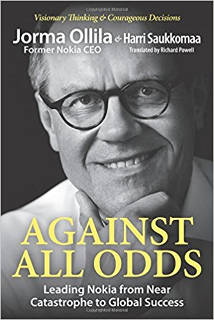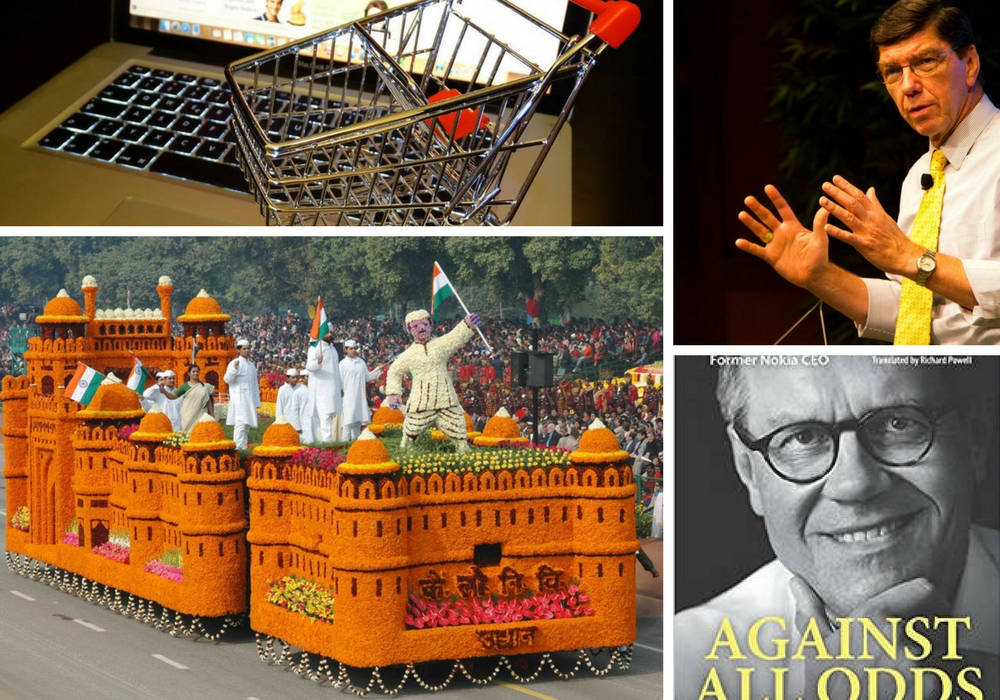Dear friend,
Some years ago, when Big Data had just started making waves across the world, I listened to a data scientist give a speech to a group of businessmen and tech executives in Bengaluru. He was trying to persuade the audience that crunching data can help companies market their products better. He said, his firm once analysed the sales of Band-Aid, and found that there was a strong correlation between its sales and rainy days. Whenever it rains in India, Band-Aid sales shoot up. “We don’t know why. But, it’s a fact. And companies can use this fact to serve their customers better,” he said.
In the last few years, the tendency to use such correlations to optimise business operations—and even to innovate—has picked up. “If you are a specific type of customer, a typical argument goes, you will buy a certain type of product, because there is a correlation between the two.” Like all assertions in the world of business, this has also attracted counter assertions.
Tyler Vigen, now a consultant at Boston Consulting Group, started charting bizarre correlations on his website, called Spurious Correlations, when he was pursuing a doctorate in law at Harvard. On the website—now a book—you will discover that the US spending on science, space and technology correlates with suicides by hanging, strangulation and suffocation, or that the number of people who drowned after falling from a fishing boat correlates with the marriage rate in Kentucky.
More recently, a professor from across the river at Boston, published a piece in Harvard Business Review—ahead of the launch of his latest book—which also questioned managers relying too much on correlation. In that piece Clayton Christensen and his co-authors persuaded managers to focus on the jobs to be done instead. Find out what you customer wants to be done—it could be functional, emotional, social or mix—and see if you can get that job done through your bundle of products and services. In Founding Fuel this week, Christensen in an interview with CKGSB Knowledge, talks about his ideas with his characteristic clarity.
One of my favourite responses from the interview goes like this: “Researchers and scientists and engineers are constantly coming up with new technologies and asking ‘how could we make money from this?’ My colleagues at Innosight have worked with many companies going through this process and what they’d say is that even if you’re starting with a solution and working back to identify a job that it might solve, the most important thing is that, when you are done, you have answered the complete end-to-end set of questions: who is the customer, what is the progress they’re trying to make, what are the circumstances, and so on.”
It resonated with me because India is right now debating a big question around technology—to be specific Aadhaar, the biometric identity and authentication programme, and the set of digital infrastructure built around Aadhaar, including e-Sign, digilocker and unified payments interface. Over a billion people have Aadhaar numbers today, and the government is now redesigning some of its programmes to integrate Aadhaar in an attempt to make its services more efficient. Some of this can significantly change citizen-state dynamics. So, it’s no wonder that it has led to intense debates. These debates tend to be too emotional and polarised.
Former Planning Commission member Arun Maira’s important essay couldn’t have come at a better time. Maira, one of the most sagacious observers of India today, has walked on this path before, in his 2007 book Discordant Democrats: Five Steps to Consensus. In his essay he makes a case for deliberative democracy, in which citizens enjoy political equality, make informed choices after deliberation, and engage with policy in a large number. That kind of deliberation is much needed when technology promises (or threatens) to disrupt our lives. There is an urgent need to get the democratic process right. Maira pulls no punches: “Democracy is in peril with innovations in technology running too far ahead of innovations in democracy’s processes. With democracy in peril, the collective future of humanity is also in peril.”
The final piece that I would like to point out is D Shivakumar’s column The Gist, where he breaks up the books he benefitted from into bite-sized slides. This time around he has pored over Nokia’s former CEO Jorma Ollila’s book, Against All Odds. Shivakumar is uniquely positioned to share his lessons from the book: He was managing director at Nokia India, before he moved on to Pepsico. Going through the slides, it struck me that technology and innovation, while they are important, are only two pieces of a large puzzle. Some of the other pieces—leadership, culture, organisational design—might be even tougher to crack. Ollila has a lot of lessons to share. And Nokia’s subsequent fate also serves as a grim reminder that despite doing our best, the advantages we enjoy are only temporary.
I suppose, it’s this knowledge that drives thought leaders like Clayton Christensen and Arun Maira to keep pushing us. We should listen to them.
If you like our newsletter, do share it with your friends and colleagues and ask them to subscribe to it.
Do write in with your comments and feedback. You can reach us on Twitter, Facebook or the comments section on www.foundingfuel.com. We’d love to hear from you.
Have a great week!
NS Ramnath
On behalf of Team Founding Fuel.
Featured Stories
The technology of democracy

[Photograph from photodivision.gov.in]
Arun Maira tell us why it’s important to fix democratic process to make use of technological progress. (Read Time: 13 mins)
Clayton Christensen on innovation: Finding the jobs to be done

[By Betsy Weber under Creative Commons]
CKGSB Knowledge interviews the Harvard professor on jobs theory. (Read Time: 5 mins)
How Nokia rewrote its story

D Shivakumar shares important lessons from Nokia’s former CEO Jorma Ollila’s book ‘Against All Odds’ (Read Time: 11 mins)
What We Are Reading
What the best transformational leaders do
The authors Scott Anthony and Evan I. Schwartz say five characteristics distinguish transformational leaders: they tend to be “insider outsiders”; they use culture change to drive engagement; they strategically pursue two separate journeys; they communicate powerful narratives about the future; and they develop a roadmap before disruption takes hold.
What’s so new about news?
In this insightful essay, Arthur Asseraf says news is less about truth and falsehood, and more of an attempt to organise time to locate ourselves within a changing world.
Why liberals aren’t as tolerant as they think
Reading Maira’s essay, one might make an attempt to put the blame on the other side that doesn’t want to participate in deliberative democracy. This piece by Matthew Hutson throws some light on the debates in the US, which applies to India too.
Simple math is why Elon Musk’s companies keep doing what others don’t even consider possible
Michael J. Coren tells us how Elon Musk’s approach to problems is similar to Richard Feynman’s.
The traditional lecture is dead. I would know—I’m a professor
Rhett Allain talks about why educational institutions should go beyond the traditional lecture by creating an environment in which students actively participate in class.
From our archives
Flipkart, Snapdeal, Paytm and other Indian unicorns are in the news again. It’s time to look back at some of the pieces by Haresh Chawla on the subject.

[By 422737 under Creative Commons]
Saving Private Flipkart | Flipkart is in the middle of a crisis of its own making—stalled growth compounded by management churn and the imminent possibility that it will cede the top slot to Amazon. But it’s not too late to change its strategy. (Read Time: 13 mins)
The narrow exit road for India's billion-dollar start-ups | For e-commerce poster boys Flipkart and Snapdeal, their valuations sound unsustainable; IPO looks neither feasible nor sensible; and the Chinese may be the only ones with money and intent to invest further. (Read Time: 9 mins)
Welcome to Tencent’s Flipkart, Amazon’s new adversary | With its recent deal, Flipkart now has not just a bigger war chest in place, but also a new set of allies that give it the heft to challenge Amazon once again. Make no mistake: it has significant implications for the future of the Indian e-commerce market. (Read time: 13 mins)


